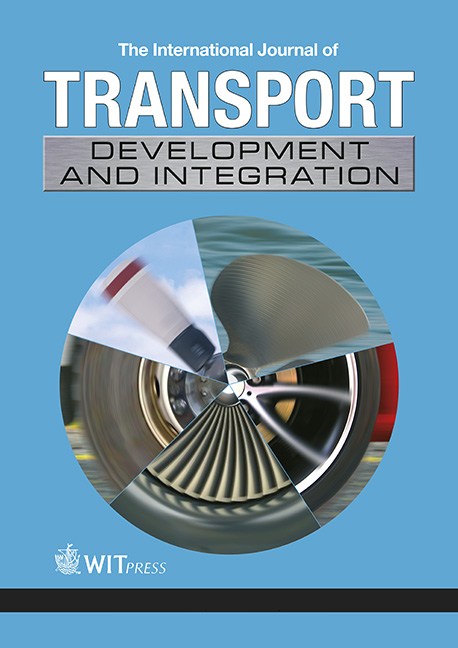A business-leisure traveller goes to Valencia: Fuel, CO2 , time and cost
Price
Free (open access)
Volume
Volume 3 (2019), Issue 1
Pages
10
Page Range
44 - 54
Paper DOI
10.2495/TDI-V3-N1-44-54
Copyright
WIT Press
Author(s)
Jaap M. Vleugel & Frans Bal
Abstract
Tourism is a fast-growing key industry, which provides an economic rationale for governments to stimulate it. The more it grows, the higher the negative environmental effects and the more the use of space, resources, pollution and travel. Sustainable tourism aims to strike a balance between the environmental, economic and social effects of tourism. The aim of this article is to find the optimal itinerary for an individual traveller to a congress hotel in Valencia. The main research question is as follows: Which itinerary has the best overall score in terms of CO2 per passenger kilometre, travel time and direct cost? Three scenarios were compared: Airplane plus, train plus and car only. The choice of these three suits the travel purpose and length. Literature was used to find the necessary trip and vehicle data. This was fed into a microsimulation model. The main outcome of the simulation experiment is that the environment would benefit if the traveller would favour the train plus scenario. This, however, has a time penalty compared to the airplane plus scenario. A trip by car is the least preferable, because of CO2 emissions, travel safety and time. Direct costs of all three scenarios are comparable. Rail has the lowest emissions per passenger in the scenarios, hence it is important that network improvement programs continue and ticket prices stay in line with the price of travelling by car or airplane. An individual traveller was chosen for different reasons. One reason is that after understanding individual touristic travel decisions and their impact, it is a small step to estimate what is feasible if many more individuals would become ecofriendly touristic travellers. A second reason is that it allows an advice for governments and businesses to target individual tourists. Finally, there is the communicative impact of simplification on individual tourists.
Keywords
CO2 emissions, fuel consumption, simulation, sustainability, Tourism.




